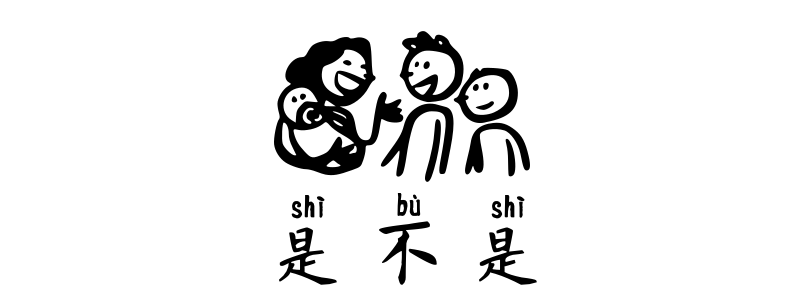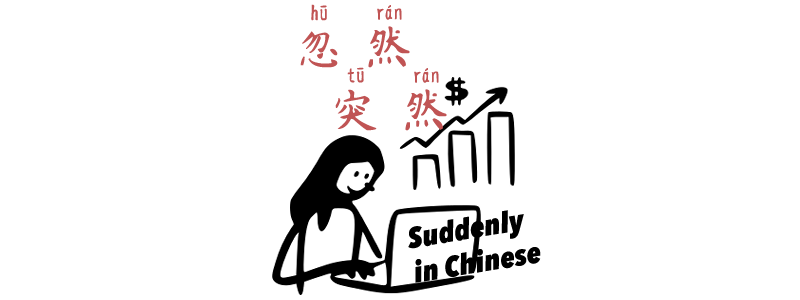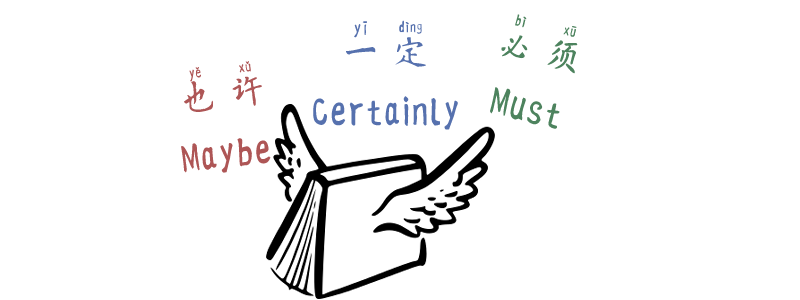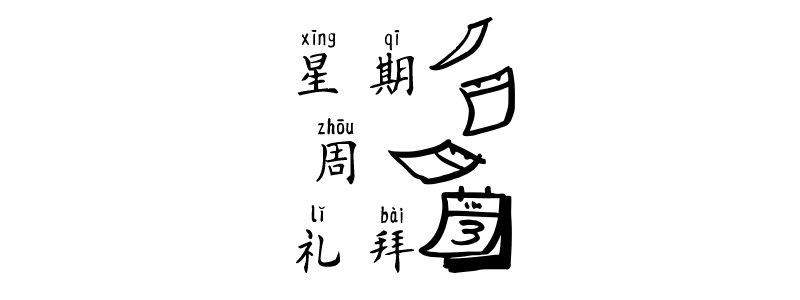Grammar Point:In Chinese, the phrase 是不是 shì bú shì is commonly used to form “yes-no question” or to seek confirmation from someone. It is equivalent to the English phrase “isn’t it?” or “right?” Structure Statement + 是不是 shì bú shì In this pattern, the speaker is seeking confirmation for information that is already known or…
Category: HSK 2
Although in Chinese – Suīrán
Grammar Point:雖虽然 suīrán is the most common word used to express “although” in Chinese. It is often placed at the beginning of a sentence or clause. Structure 雖然/虽然 ⋯⋯ ,但是 or 可是 ⋯⋯ This pattern means “although…, but…” in English. However, in English, the “but” is not necessary, but it is required in Chinese to…
“When” in Chinese – Dāng
Grammar Point:The word 當当 dāng can function as a preposition and is often translated as “when” in English. It is a more formal way to express the phrase 的時候的时候 de shíhòudede shíhou. Structure 當/当 + Phrase The phrase 的時候的时候 de shíhòudede shíhou or 時时 shí are often used with 當当 dāng structure. 當dāng我的wǒde狗gǒu看到kàndào我wǒ, 他tā會huì一直yìzhí搖yáo尾巴wěibā当dāng我的wǒde狗gǒu看到kàndào我wǒ, 他tā会huì一直yìzhí摇yáo尾巴wěibāWhen…
Suddenly in Chinese
Grammar Point:In Chinese grammar, the word “suddenly” can be translated as 突然 tūrán or 忽然 hūrán. These words are often used to indicate an unexpected or abrupt change or action. Difference 忽然 hūrán The word 忽然 hūrán is an adverb that functions solely as an adverbial modifier in a sentence. It should not be preceded…
“But” in Chinese
Grammar Point:The words 不過过 búguò, 但是 dànshì, and 可是 kěshì can all be used to express the meaning of “but” in Chinese, but they have slight differences in usage and tone. Difference 但是 dànshì This is a common and versatile word used to express contrast or contradiction in both spoken and written language. It can…
“Already” in Chinese 1 – yǐjīng and dōu
Grammar Point:In Chinese grammar, the words 已經经 yǐjīng and 都 dōu are commonly used to convey the meaning of “already.” Structure When comparing 已經经 yǐjīng and 都 dōu, both indicate that something has already occurred. However, 都 dōu adds a stronger emphasis and suggests the speaker’s emotional involvement or attitude towards the event. It conveys…
“Must”, “Certainly”, and “Maybe” in Chinese
Grammar Point:In Chinese, the translations for “must,” “certainly,” and “maybe” are 必須须 bìxū, 一定 yídìng, and 也許许 yěxǔ. But they do have some overlap parts. Structure All three of these words are adverbs in Chinese, which means they are not placed like in English where you put them before the subject or at the end…
“Still” in Chinese 1 – Hái
Grammar Point:In Chinese, the word 還还 hái can be translated as “still” or “yet” in certain contexts. It is commonly used to indicate that a particular situation or state continues to exist or remains unchanged. Structure S + 還还 hái + Adj When there are multiple adverbs in a sentence, 還还 hái is placed before…
First, Second, and Third
Grammar Point:In Chinese, ordinal numbers are formed by adding the word 第 dì before the cardinal number. Structure 第 dì + Number 第 dì + Number + Measure word + N If you want to describe ordinal numbers with a noun, don’t forget to include a measure word in between. 第dì五wǔ瓶píng水shuǐ第dì五wǔ瓶píng水shuǐThe fifth bottle of water…
Day and Week in Chinese
Grammar Point:In Chinese, “day” is translated as 日 rì or 天 tiān, and “week” is translated as 週周 zhōu, 禮礼拜 lǐbài or 星期 xīngqíqī. Structure Number + 日 or 天 天 tiān is commonly translated as “day” or “a day.” 日 rì is less commonly used in everyday Chinese. It has a slightly more formal…









